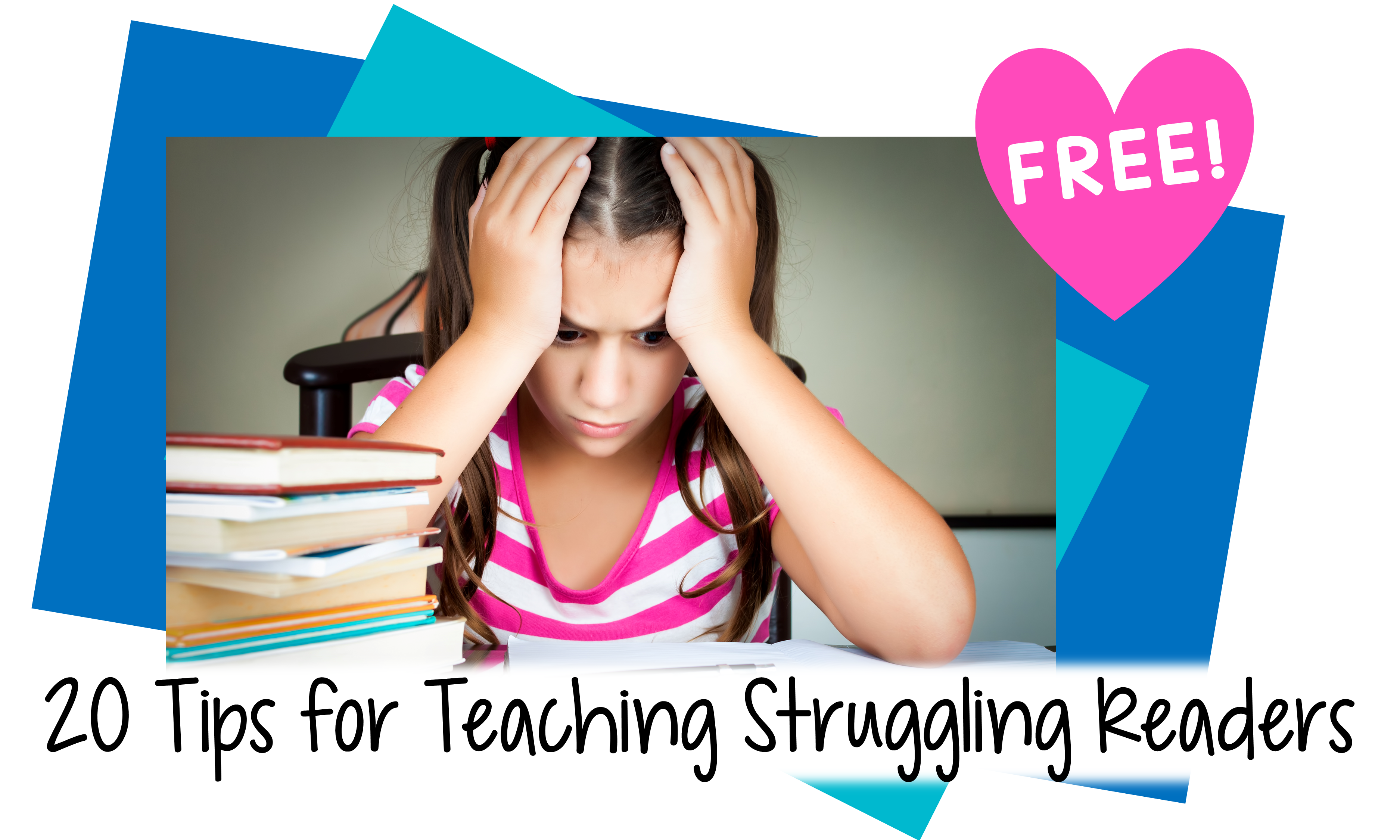Want to start the school year off in the best way you can for your kindergarten or first grade reading students? The magic word is ASSESSMENT! Conducting proper assessments early on saves time and allows you to teach what your students need, rather than waste time going over what they already know. Whole group assessments, in particular, are quick and easy to administer, as opposed to one-on-one evaluations, where you have to find something for the rest of the group to do while you administer them. I’m going to show you four informal whole group assessments that you can create yourself,...
The topic of phonics is popping up all over the place–not just with teachers and parents, not just on MY blog (!)–but in the news media and general interest magazines, as well. However, I’ve noticed a lot of misconceptions out there about teaching phonics, and I’d like to clear up a few of them. Misconception #1: There’s no such thing as too much phonics. If teaching phonics is a good thing, it might seem that more phonics is always better. But phonics can be overemphasized at the expense of other aspects of reading, such as fluency and comprehension. Furthermore, phonics...
Toward the middle of the year, many of us like to conduct reading assessments to evaluate our students’ progress. But guess what! The way our students perform on midyear assessments can also shed light on our own success as reading teachers. Are you ready to take a look at yourself? Donny is having trouble decoding phonetic words. I’ve got to teach phonics more explicitly. Sarah is missing a lot of nonphonetic words. Maybe I should pay more attention to teaching sight words. Peter’s spelling is poor. I’ve got to teach my students to spell phonetically. Halfway through the school year is a...

What a time for early literacy tutors! Because of the last two years of COVID and the so-called learning gap, both in-person and online tutors are in great demand right now. Many studies have shown a loss of achievement in reading as a result of the pandemic, especially for at-risk populations. I’m not here to argue about the reasons that many students are behind academically or the extent of the learning gap. Instead, I want to focus on how you can help as a tutor of beginning readers. In many ways, these suggestions are just what I would recommend for...
Are you turning your attention going back to school? If so, you want to start with thinking about assessment–especially this year after so many students have been learning remotely because of COVID. This year it’s possible that your class will look very different from the way classes looked at the beginning of previous years. Baseline Testing When I was teaching 2nd grade classroom and 1st grade guided reading, my primary goal at the beginning of the year was getting to know my students–both personally and academically. Establishing a reading baseline informs your instruction–where to begin teaching, who needs extra help,...
Today I want to talk about teaching letters and letter sounds to beginning readers. A strong alphabet foundation is beneficial, no matter what teaching method you are using.
Don’t you love getting ready to tutor a new student? You look forward to getting to know this youngster as a reader, and as a person, too. It’s wonderful to anticipate using your own teaching strengths to help someone else experience the joy of literacy. Aren’t we reading teachers the luckiest people in the world? (more…)
Many teachers cringe when they hear the word testing, mainly because so much of it is mandated at the national, state, and district level. Weeks of classroom time have been stolen to both prepare for and administer high stakes standardized (norm-referenced)[i] tests with little or no benefit to our students. And, for some of us, our jobs have depended on our students doing well on these time-consuming tests. Talk about stress! (more…)
It’s that time of year again! At the middle of the year, the honeymoon is over for reading teachers. We have to face the fact that, no matter how carefully we have chosen books and planned our lessons, there are going to be some students in our guided reading groups who aren’t progressing as they should. And, contrary to what you might think, these children aren’t always in our lowest reading groups. But don’t feel bad. (more…)

